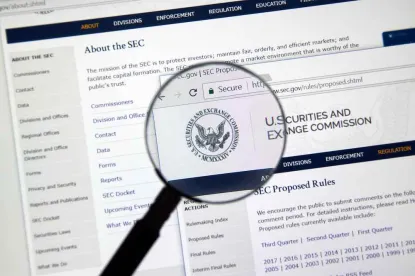Earlier this week, the Securities and Exchange Commission proposed to amend its rules to require issuers to disclose share repurchases within one business day on a new Form SR. The SEC basis its proposal on its thesis that "information asymmetries" exist between issuers and affiliated purchasers and investors. The SEC also claims "because announcements of repurchases and actual repurchase trades can also effect short-term upward price pressure, share price- or EPS-tied compensation arrangements could incentivize executives to undertake repurchases in an attempt to maximize their compensation".
This latter claim, however, is belied by the SEC staff's report to Congress that was issued just one year ago, which concluded:
In conclusion, collectively, 82% of the firms reviewed either did not have EPS-linked compensation targets or had EPS targets but their board considered the impact of repurchases when determining whether performance targets were met or in setting the targets. This potentially suggests that most repurchase activity does not represent an effort to influence the value of EPS-linked compensation.
It is true that the cover page of the staff's report states "The Commission has expressed no view regarding the analysis, findings, or conclusions contained herein". Nonetheless, it is hard to believe that the Commissioners would have countenanced the staff sending a report to Congress that Commissioners believed was wrong. The SEC distances itself from the staff's conclusion in footnote 80 of the proposed rule release.
While I believe that there are valid reasons for stock buybacks, I have also observed that they can be viewed as fundamentally antagonistic to the raison d'etre for the corporation. Investors give money to corporations because they expect the corporation to put their funds to better use than they can on their own. When a corporation gives the money back through a stock buy-back or cash dividend, the implicit message to investors seems to be "we can't think of anything better to do with your money".



 />i
/>i

